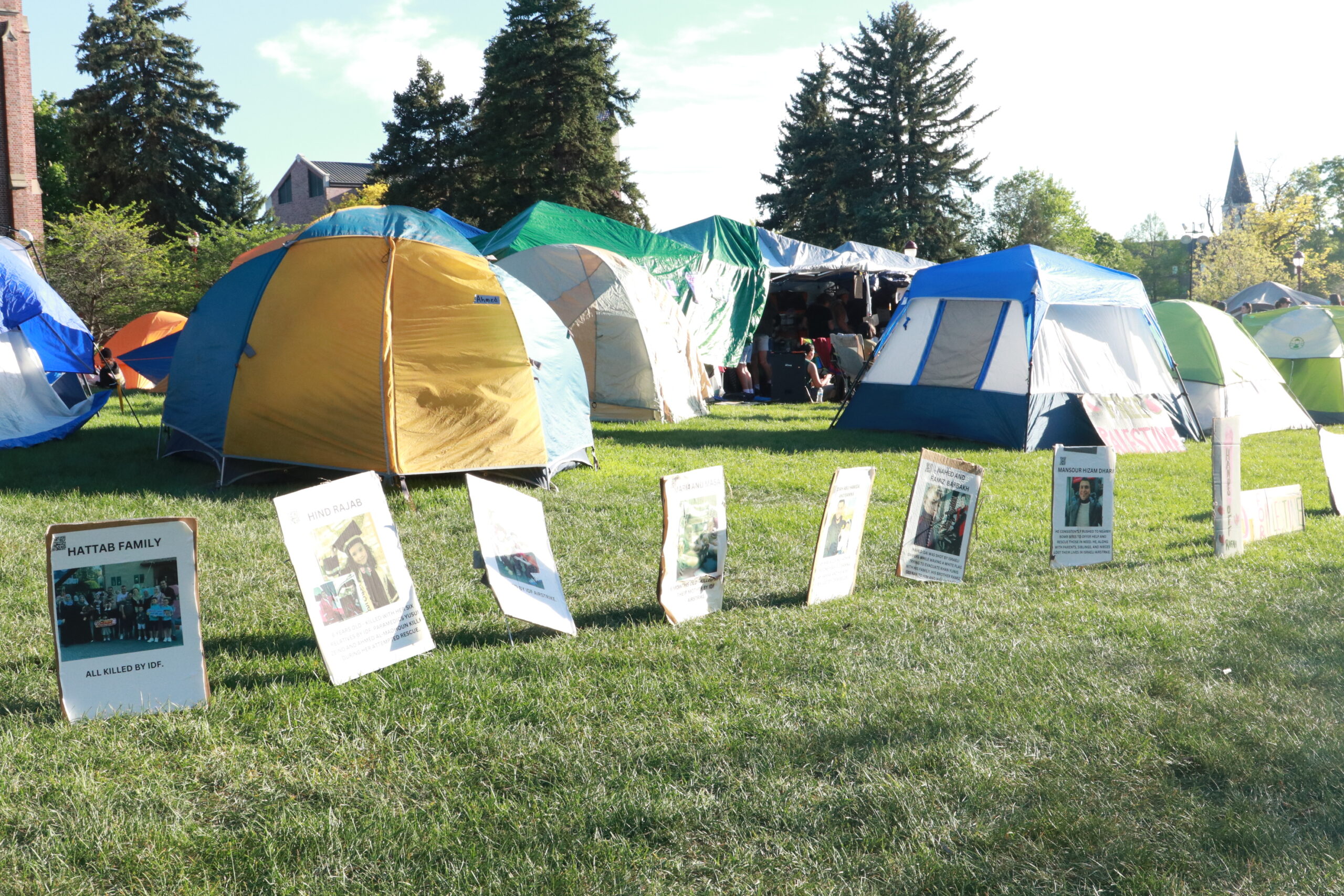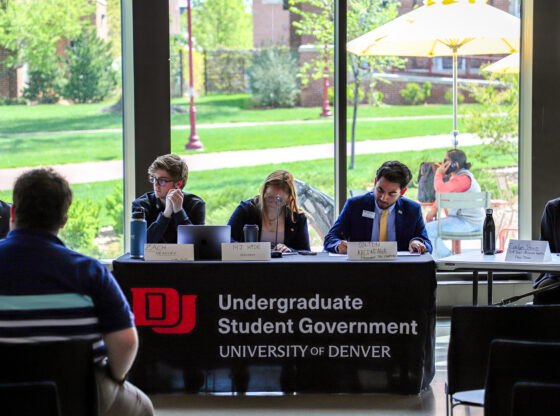Two opponents and two proponents debated the three tax measures on the Colorado ballot, amendments 60 and 61 and Proposition 101, last Tuesday at the Newman Center.
Natalie Menten and Debbie Schum, Colorado Tax Reforms activists, spoke for the measures. Against were State Senate Minority Leader Josh Penry, R-Grand Junction, and State Senate President Brandon Shaffer, D-Longmont.
Aaron Harber moderated the debate, which was attended by about 35 community members. It was part of Harber’s Colorado Election 2010 series, which has hosted debates for the state gubernatorial and senatorial races and for issues on the November ballot.
The debate primarily discussed the controversial Amendment 60.
Menten and Schum believe property tax increases and government spending are out of control, and this measure would successfully reduce the state’s debt and put money back into the pockets of individuals.
“If you think the government is going to reign itself in, you’re going to be waiting a very long time,” said Schum.
Penry said this measure addresses the right problem but is the wrong solution.
“The solution on a practical level just doesn’t work,” he said.
“Fiscal conservatives in the state legislature all say this goes too far,” said Penry.
Amendment 60 would cut mill levies in half by 2020, which would lower property taxes statewide by 50 percent over the next 10 years.
Property taxes go to fund local schools, so school funding from property taxes would be decreased by half by 2020. Amendment 60 would require the state to make up for lost property tax revenues from its general fund.
The state would need to supply nearly $1 billion by 2020 for school funding from its general fund, said Schum and Menten.
This would be impossible, argued Shaffer and Penry, considering the total state general fund was about $6.6 billion last year.
Nearly $1 billion in other services would have to be cut to fund schools.
“If you’re going to propose it, you have to tell us where the funds will come from,” said Penry.
Menten argued the money would come from current waste and over expenditures in state spending.
She mentioned that the state spent $5 million on supplies and $8 million on miscellaneous expenses last year.
Funding for schools could come from stripping these kinds of expenditures to only the necessities, she said.
Amendment 60 would also void all voter-approved tax increases above TABOR limits in counties and municipalities across the state. TABOR (the Taxpayer Bill of Rights) was an amendment to the Colorado Constitution in 1992 that limited property tax revenues to a certain rate. TABOR allowed for cities to overturn these tax revenue increase limits in popular vote referendums.
“We need to restore TABOR. TABOR is what allows us to decide where the money’s going,” said Schum.
This goes against the vast majority of voters in school districts, said Shaffer. Over 98 percent of school districts in the state have voted to exceed TABOR limits to allow their districts to raise more revenue for school funding.
Shaffer estimated that about 73,000 Colorado jobs would be lost from the public sector if Amendment 60 passed, including 21,000 teachers and 21,000 construction workers.
“This is not the time to take this step backward and decimate our economy,” he said.
Schum countered that theoretically no jobs would be lost in the private sector and she estimated taxpayers would save about $376 per year on average if the measure passed.
“When you see a government that’s out of control, it’s not just your right, but it’s your duty to interject,” she said.










